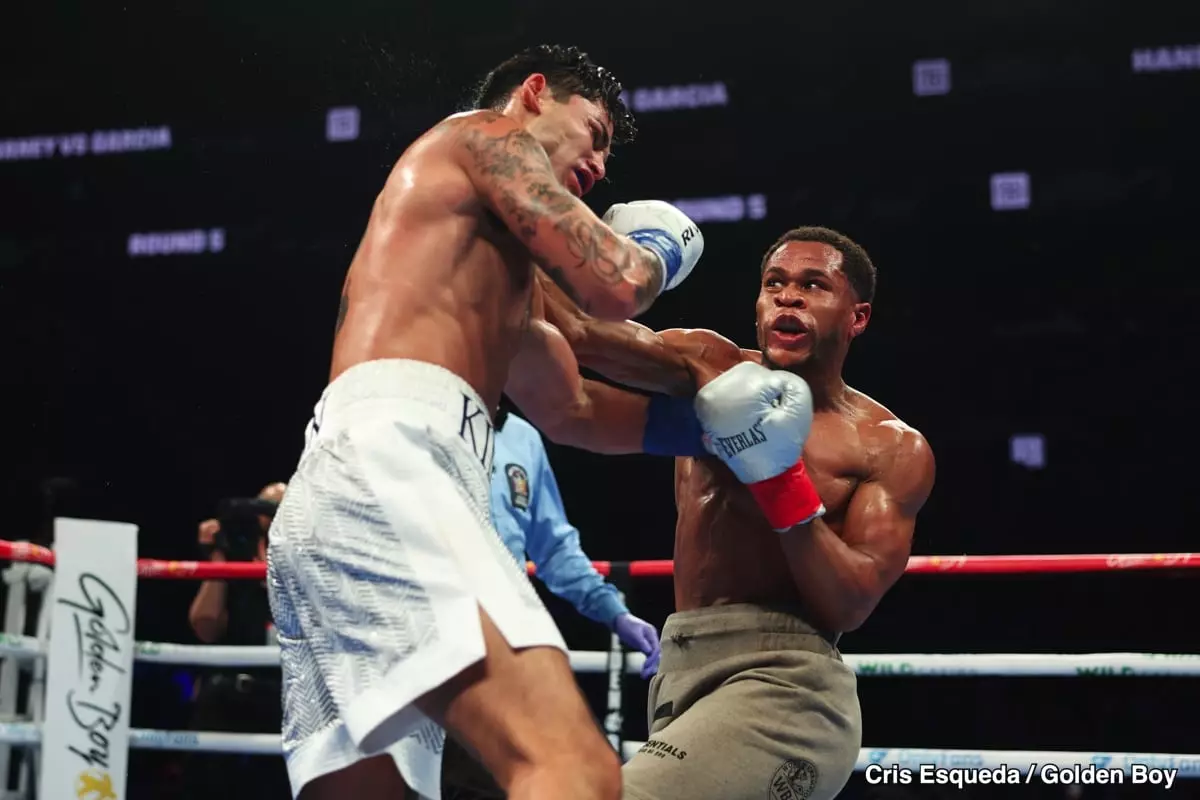In the world of professional boxing, losses can be daunting, especially when they stem from a significant defeat like the one Devin Haney experienced against Ryan Garcia in April. Haney, once heralded as a rising star in the sport, is now at a crossroads. Promoter Eddie Hearn has stepped in with some guidance, suggesting that Haney should consider a tune-up fight at a catchweight between 140 and 147 pounds before the year closes. This advice stems not just from the scores on the judges’ cards but from the emotional toll that such a bout can take on a fighter.
Hearn’s insight into Haney’s situation underscores the necessity of rebuilding confidence after a striking defeat. Losing to a rival like Garcia can leave deep emotional scars, manifesting in both psychological and physical ways. Hearn’s mention of a “catchweight” fight signifies a strategic move to facilitate Haney’s recovery without the added pressure of drastic weight adjustments. Given Haney’s recent struggles, an easier opponent in a less challenging environment could serve as the first step in his journey back to contention.
Hearn’s exclusion of a fight against IBF light welterweight champion Liam Paro, particularly in Australia, indicates a deeper understanding of the challenges posed by weight class rules, such as the IBF’s stringent 10-pound rehydration limit. These restrictions highlight a critical aspect of boxing strategy: it is not merely about who can punch the hardest, but about how well a fighter can adapt to the division’s unique challenges. Haney’s recent rehydration to 165 lbs suggests that competing at 140 or 147 could present risks that outweigh potential gains.
The choice of the next opponent is crucial for Haney, not just for restoring his profile but for re-establishing his mental fortitude. The need for a manageable fight becomes paramount, as Hearn emphasizes the importance of maintaining sharpness without diving into high-risk encounters too soon. It reflects a forward-thinking approach, knowing that a quick return to the ring against another formidable opponent might hamper Haney’s long-term prospects.
In a recent emotional interview, Haney appeared visibly affected by his previous loss. This reaction is a common reality for fighters who pour their heart and soul into their craft, often making it difficult to bounce back immediately. The mental aspect of boxing cannot be overstated; a fighter needs to possess not only physical readiness but also psychological resilience. Hearn’s insights reveal an understanding of this delicate balance.
Hearn’s advice encapsulates a protective stance—yielding to the idea that Haney needs time to regroup and redefine his approach. Rather than eagerly jumping back into competition against high-caliber opponents, the promoter advocates for a more calculated return, allowing Haney to regain his footing in the sport and build upon his skills and confidence.
Overall, Eddie Hearn’s recommendation for Devin Haney is not merely a suggestion for one fight; it’s an overarching strategy aimed at fostering a robust comeback narrative. By prioritizing a catchweight bout at the end of the year, Haney can incrementally rebuild from a place of vulnerability to one of strength, laying the foundation for future aspirations. The boxing world will be watching closely as Haney attempts to navigate this phase of his career, with Hearn’s guidance serving as a beacon toward potential redemption.

